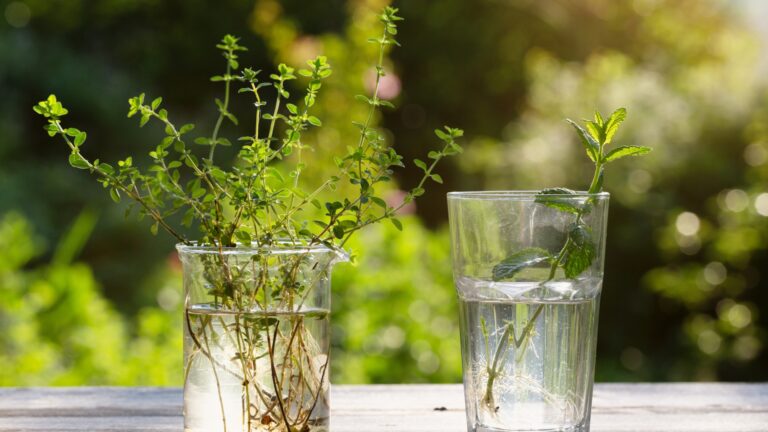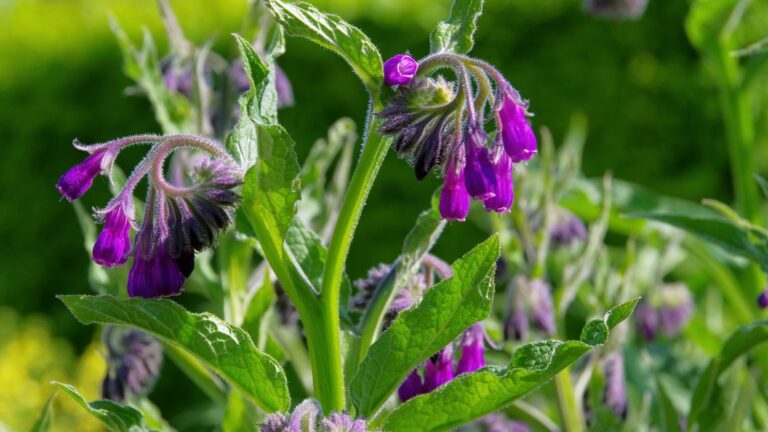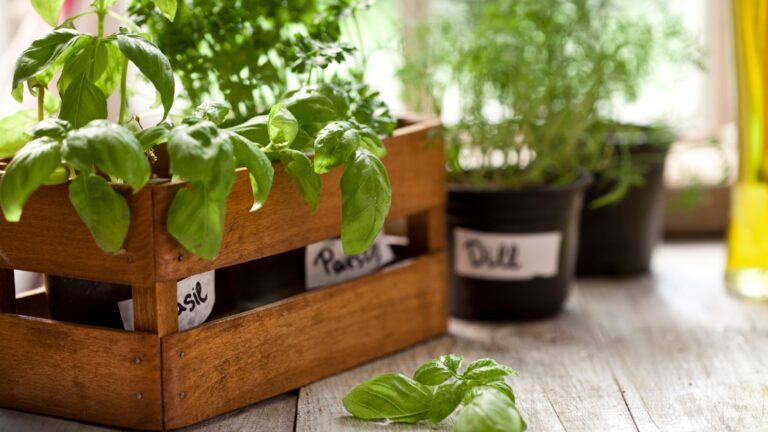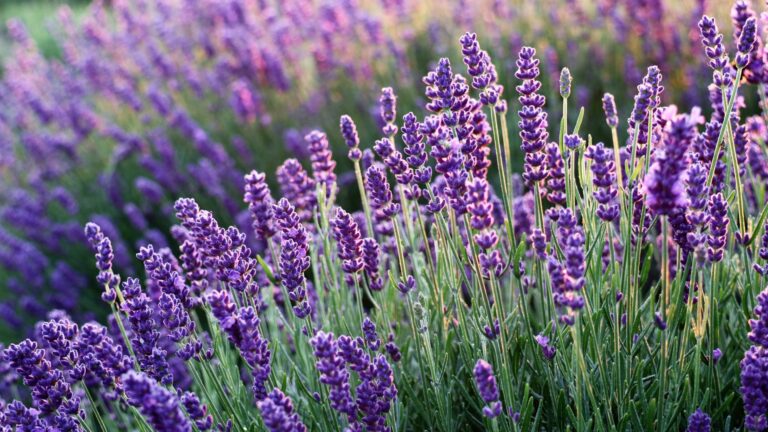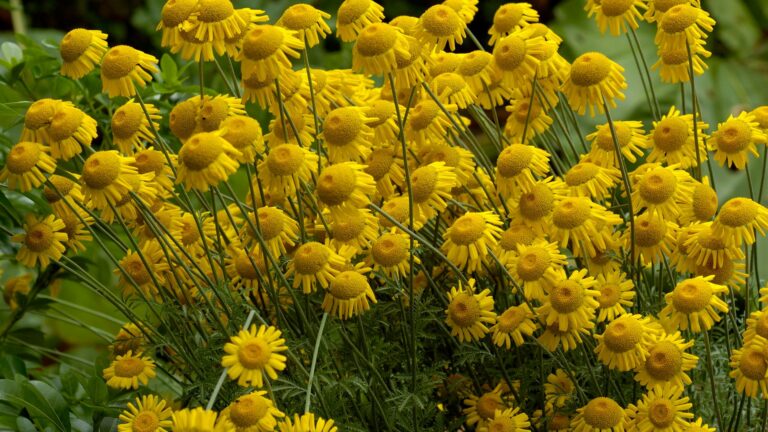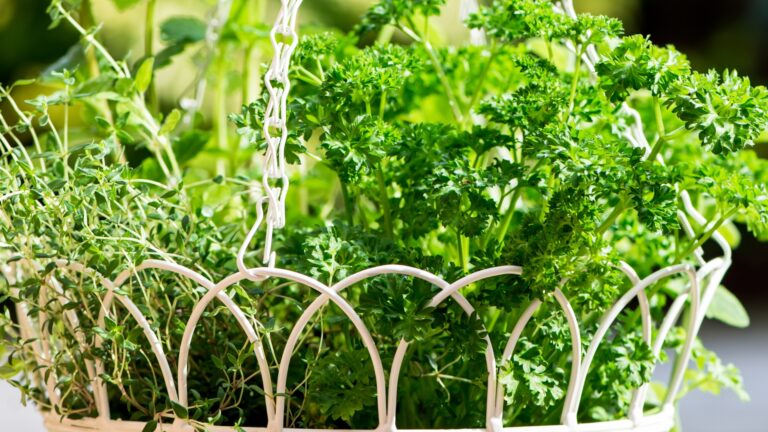16 Fresh Herbs To Grow For Crafting Beautiful Homemade Soaps
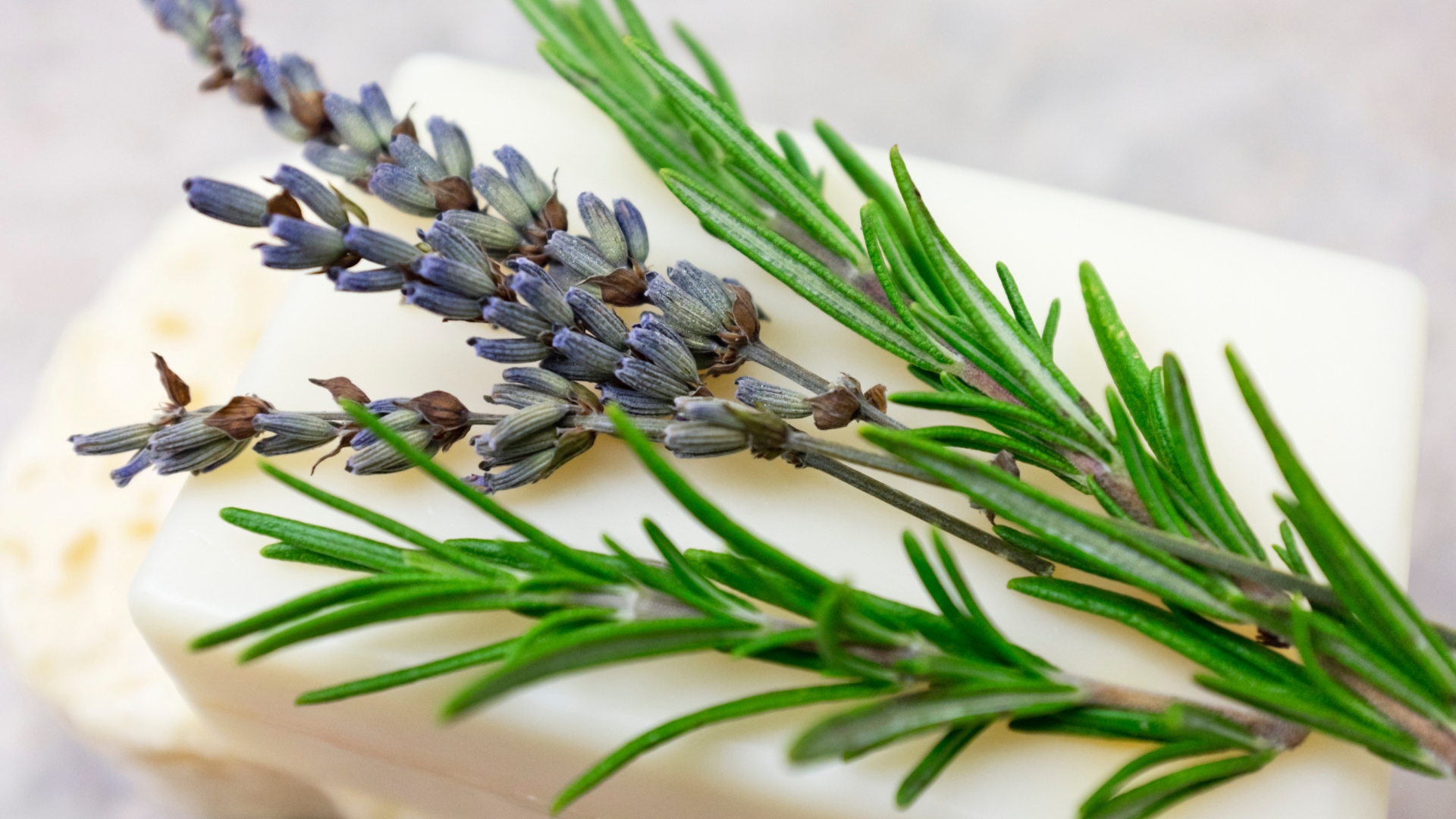
Making homemade soap is like crafting a personal piece of nature. You can grow herbs right in your garden that will turn your soap-making into a fragrant adventure. These herbs not only smell amazing but also bring special qualities to your soap, making it truly unique.
1. Lavender
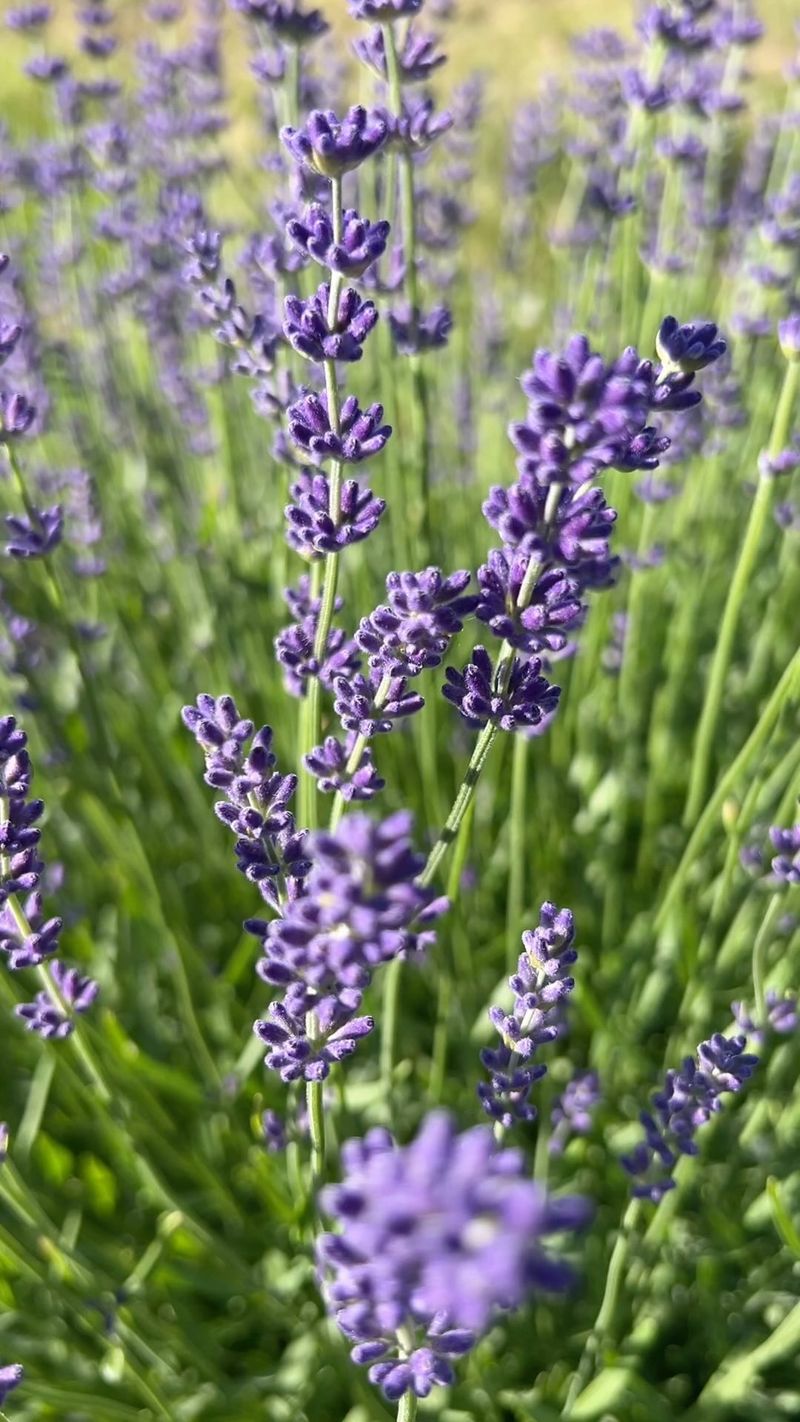
Lavender, with its soothing scent, is a favorite for homemade soaps. Its relaxing aroma helps to calm nerves and promote restful sleep. The purple blooms are not only beautiful but also beneficial for the skin, helping to reduce redness and irritation.
Growing lavender is relatively easy in sunny spots with well-drained soil. The plant is hardy and can thrive in various climates. An added bonus: lavender attracts pollinators like bees and butterflies, making your garden lively.
Did you know? Historically, lavender was used in baths to purify the body and spirit. It’s a timeless herb that continues to enchant.
2. Mint
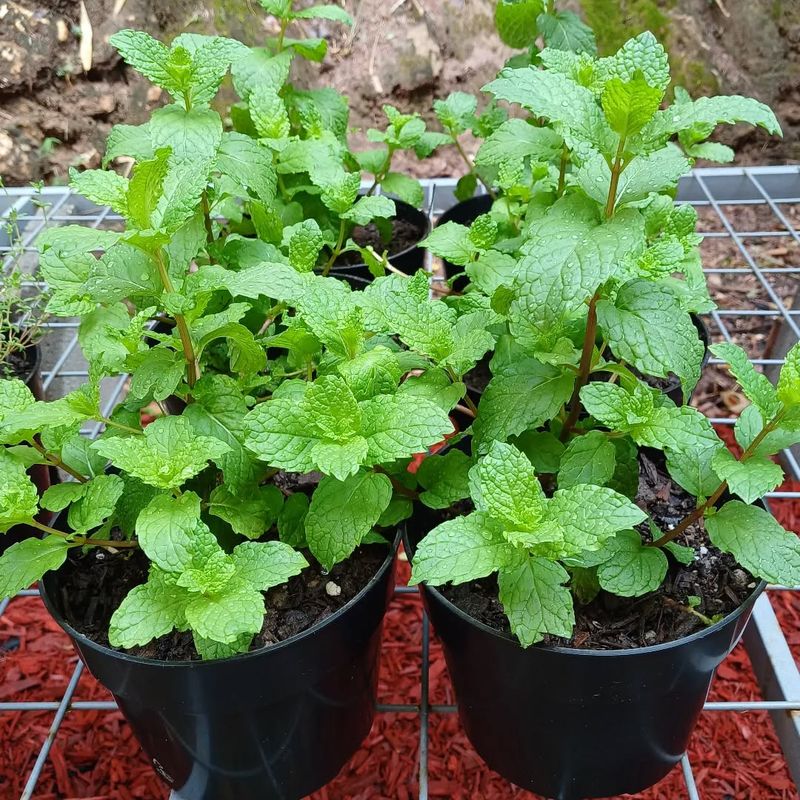
Mint’s refreshing scent makes it perfect for invigorating homemade soaps. This herb is known for its cooling properties and can help soothe itchy skin. The crisp fragrance adds a revitalizing touch to your daily wash.
Mint is incredibly easy to grow and spreads quickly, so it’s wise to plant it in a pot or a contained area. It thrives in moist soil and partial sunlight, making it a versatile addition to any garden.
Mint has been used since ancient times for its medicinal properties and was a symbol of hospitality in Greek culture.
3. Rosemary
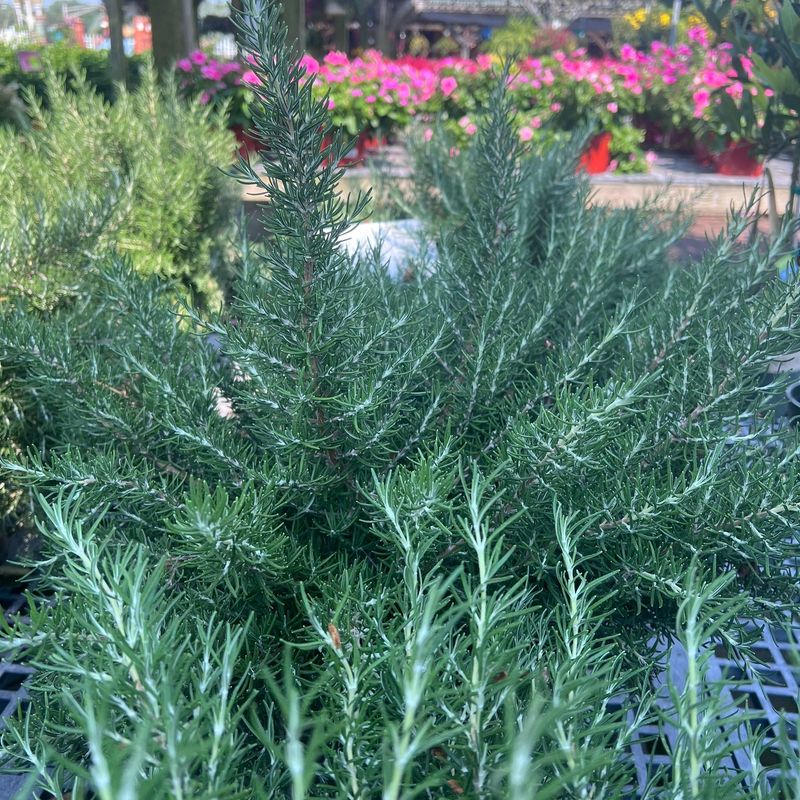
The earthy scent and antimicrobial qualities of rosemary make it a wonderful herb for creating soaps. It adds a woodsy fragrance and can help cleanse the skin of impurities. Rosemary is also believed to improve concentration and memory.
To grow rosemary, choose a spot with plenty of sunlight and well-drained soil. It’s a drought-tolerant plant, so it doesn’t require much water once established. Pruning regularly will help maintain its shape and encourage new growth.
Rosemary was once used to ward off evil spirits and protect against the plague in medieval times.
4. Chamomile
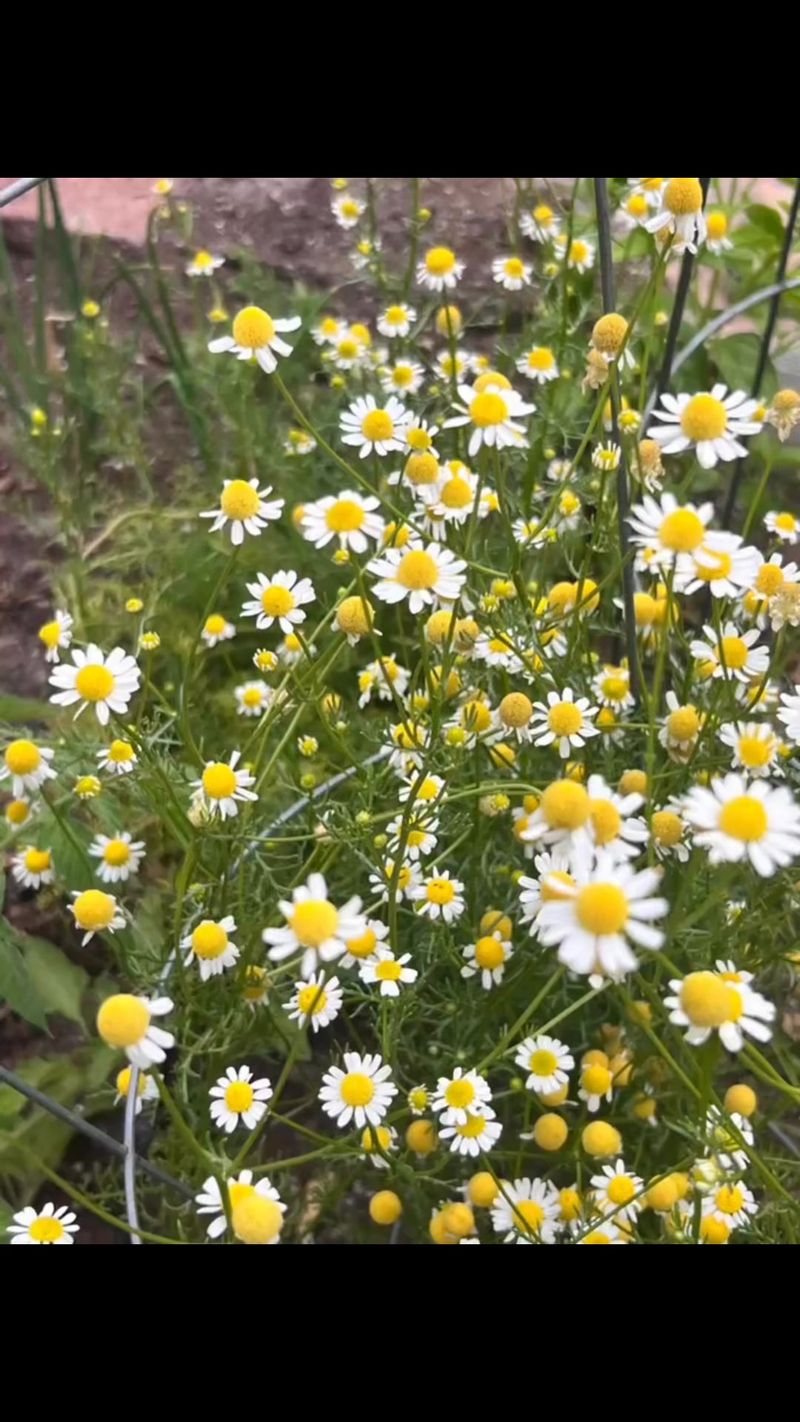
Chamomile’s gentle nature makes it ideal for sensitive skin. Its calming properties are perfect for soothing irritated skin and promoting relaxation. The tiny, daisy-like flowers add a touch of elegance to any soap.
Chamomile grows best in well-drained soil with plenty of sunlight. It’s a resilient plant that can thrive in gardens or pots. The flowers can be harvested and dried for use in soaps or teas.
Chamomile has been used for centuries in traditional medicine to aid sleep and relieve stress. This charming herb continues to be a beloved remedy today.
5. Calendula
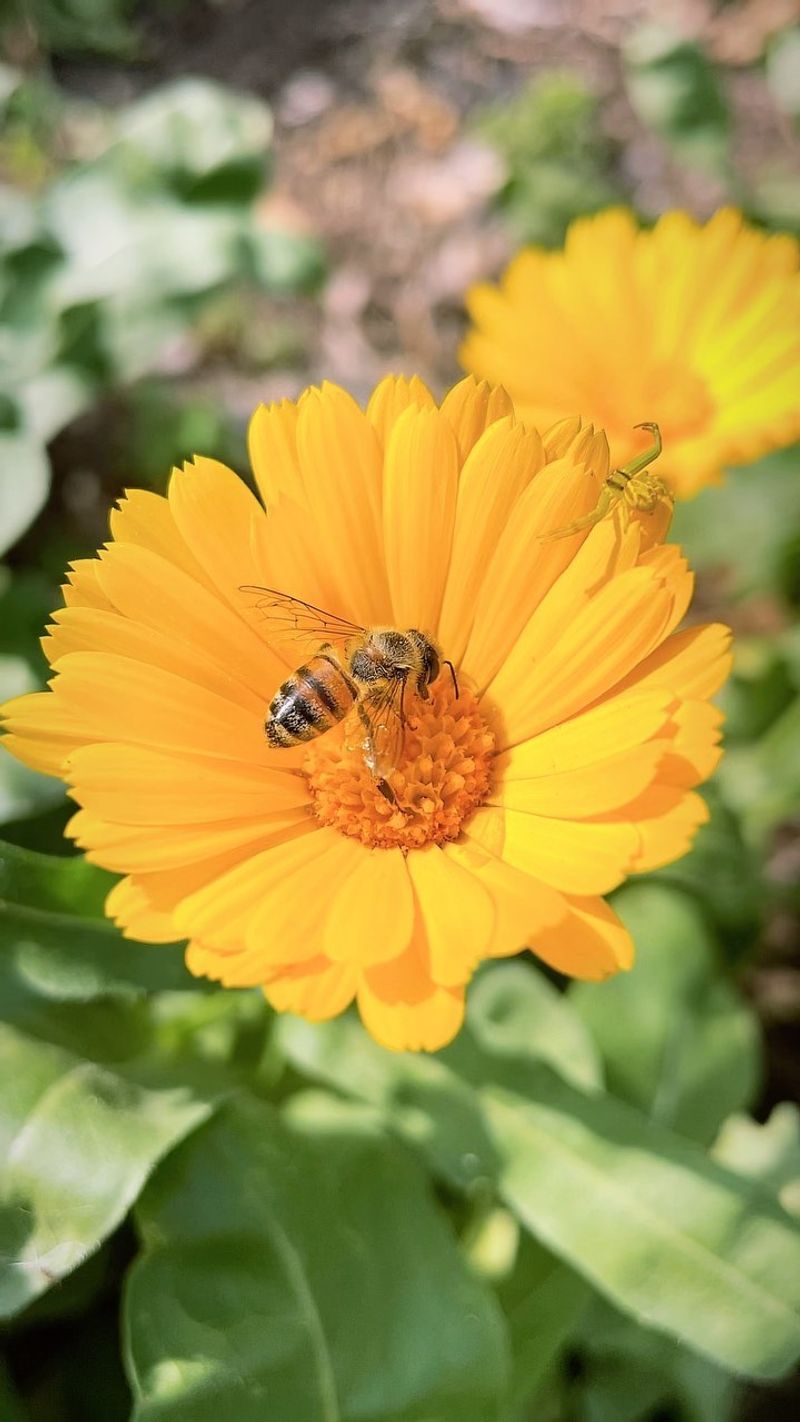
Known for its skin-healing powers, calendula (or pot marigold) is a must-have herb. It’s excellent for soothing cuts, burns, and minor skin irritations, making it a must-have for homemade soaps.
This vibrant flower thrives in sunny spots with well-drained soil. It’s easy to grow and produces a bounty of blossoms throughout the growing season. Calendula petals can be dried and used in soap for both color and benefits.
Calendula has been used since ancient Egypt for its rejuvenating qualities, and its bright flowers were also used to dye fabrics naturally.
6. Lemon Balm
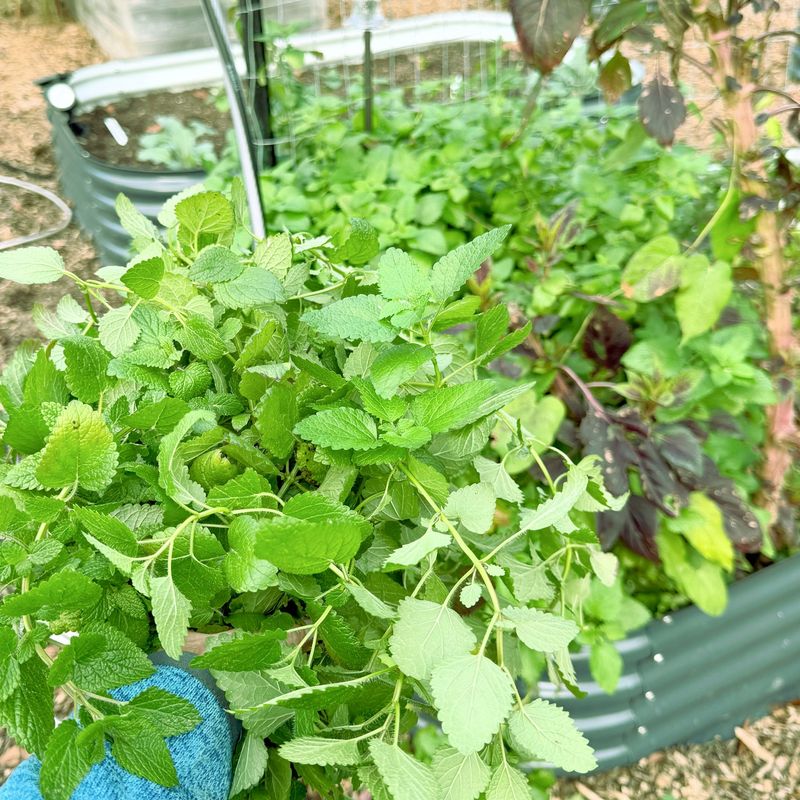
Lemon balm’s fresh, citrusy aroma brings a refreshing quality to homemade soaps. It’s known for its calming effects and is often used to reduce stress and uplift the mood. The leaves of this herb add a gentle fragrance to soap blends.
Growing lemon balm is simple; it prefers well-drained soil and partial shade but can adapt to various conditions. This hardy plant can spread quickly, so regular harvesting is beneficial.
In the Middle Ages, lemon balm was believed to improve longevity and was used in healing elixirs by herbalists.
7. Thyme
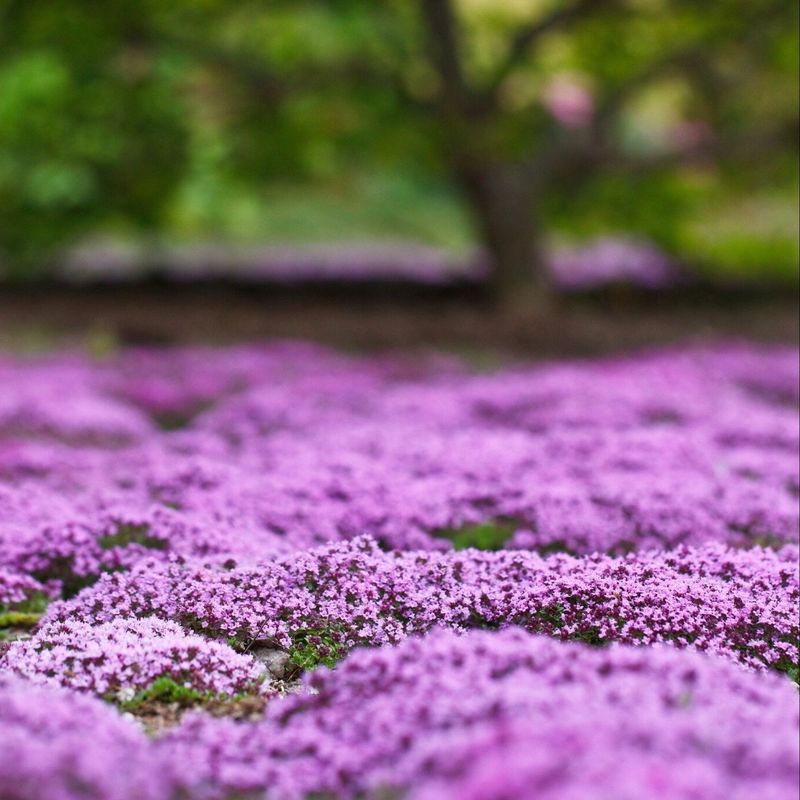
With its powerful antibacterial and antifungal properties, thyme is a perfect herb for crafting natural soaps. The earthy scent and health benefits make it a well-loved herb.
It’s easy to grow thyme in a sunny location with well-drained soil. This herb is drought-resistant and can survive in dry conditions, perfect for rock gardens or containers.
Thyme has been used since ancient Rome for flavoring cheeses and liquors, as well as for its medicinal properties to fend off infections and improve respiratory health.
8. Basil
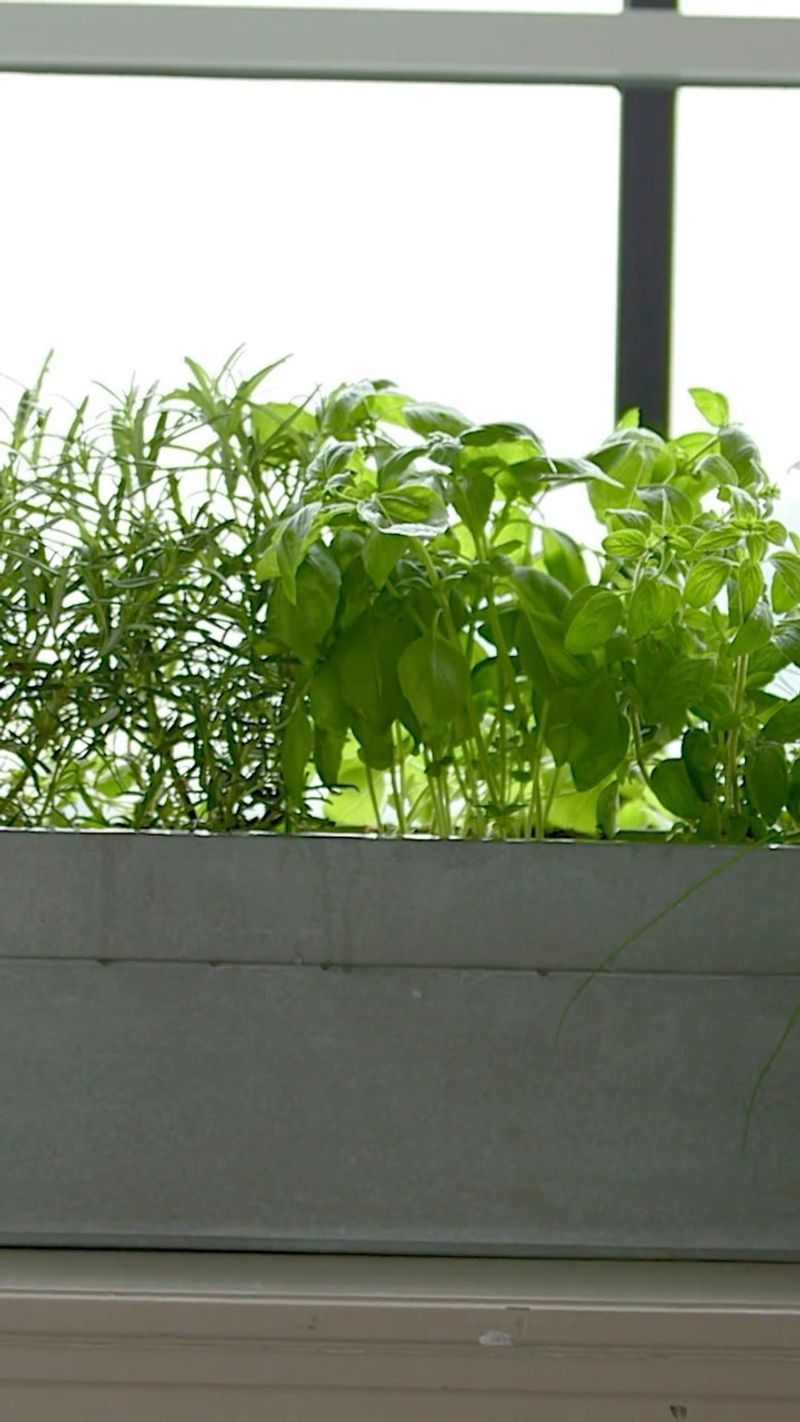
Basil’s sweet and spicy aroma is a popular choice for creating aromatic soaps. It’s known for its antibacterial properties, making it beneficial for cleansing the skin and promoting a healthy glow.
This herb grows best in warm, sunny conditions with well-drained soil. Basil can be grown in pots or directly in the garden. Regular pinching of leaves encourages a bushy growth and more flavorful leaves.
In ancient times, basil was considered a symbol of love and was used in love potions. It’s a timeless herb that continues to captivate with its delightful scent.
9. Sage
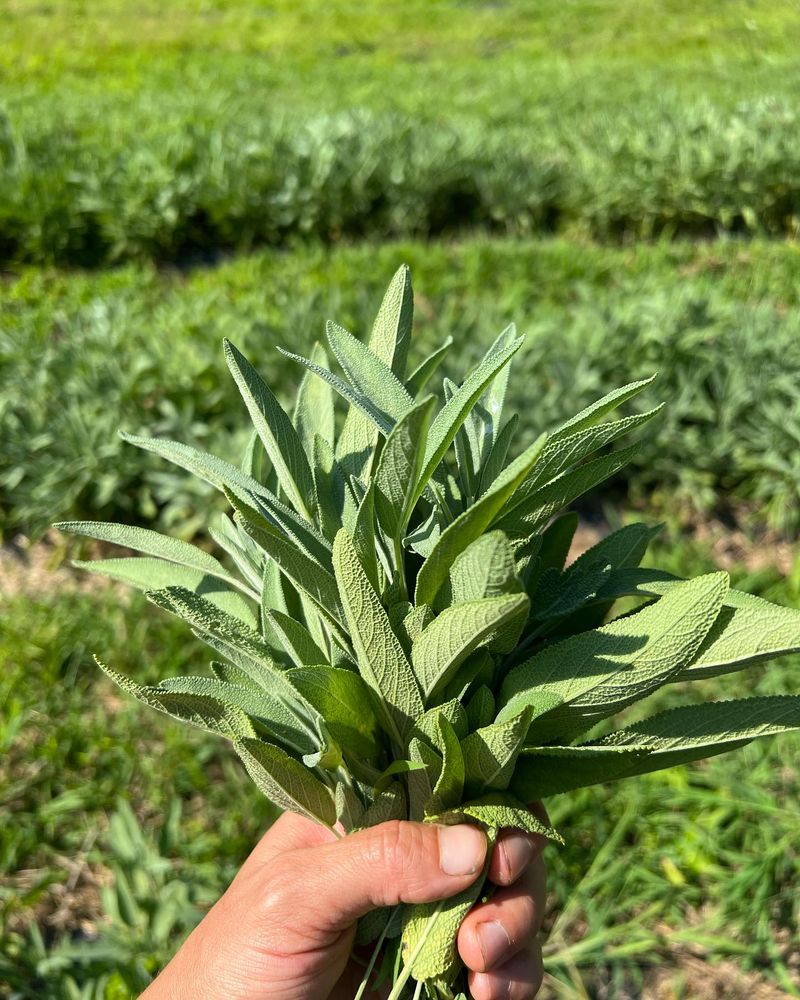
The strong, earthy scent of sage brings a powerful fragrance to your homemade soaps. It’s known for its astringent properties and can help to tone and tighten the skin.
Sage thrives in sunny locations with well-draining soil. It’s a hardy plant that doesn’t require much water, making it ideal for low-maintenance gardens. Regular pruning will keep it healthy and encourage new growth.
Sage has been used for centuries in ceremonies and rituals for purification and protection. Its rich history adds a touch of mystique to your herbal garden.
10. Eucalyptus
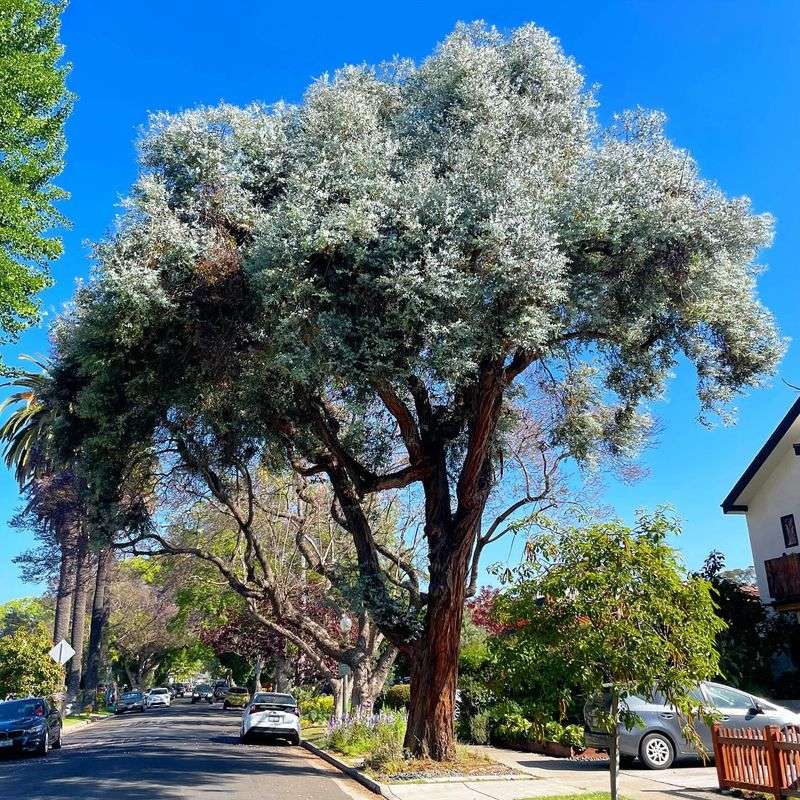
Eucalyptus brings a refreshing, menthol-like scent to soaps, perfect for clearing the mind and invigorating the senses. It’s often used in aromatherapy to relieve stress and respiratory issues.
Growing eucalyptus requires a sunny spot and well-drained soil. This fast-growing tree can reach impressive heights, making it suitable for large gardens. Regular pruning can help manage its size and shape.
Eucalyptus is native to Australia and is the primary food source for koalas. Its oil has been used in traditional medicine for centuries, offering both fragrance and function.
11. Peppermint
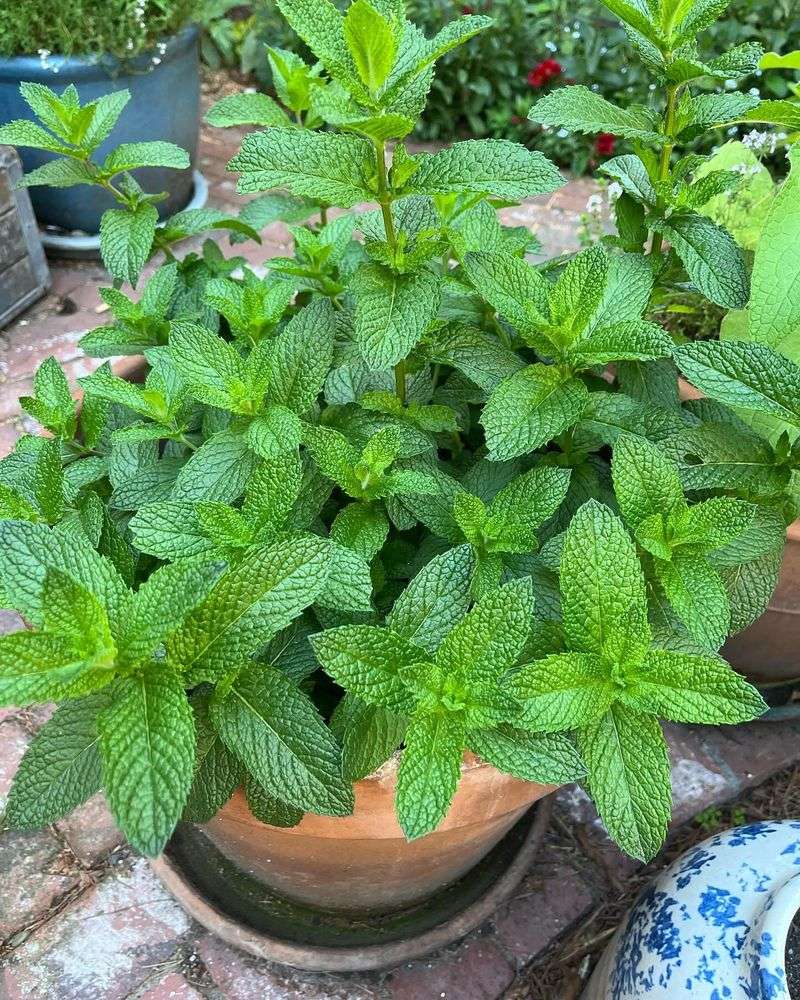
The invigorating scent of peppermint is perfect for adding a refreshing twist to homemade soaps. It’s known for its cooling sensation and can help soothe irritated skin.
This herb is easy to grow in moist, well-drained soil and partial shade. Peppermint can spread quickly, so it’s wise to plant it in a container or confined area.
Peppermint has been used for centuries in traditional medicine to treat headaches and digestive issues. Its refreshing aroma and cooling properties make it a versatile herb for both culinary and medicinal uses.
12. Aloe Vera
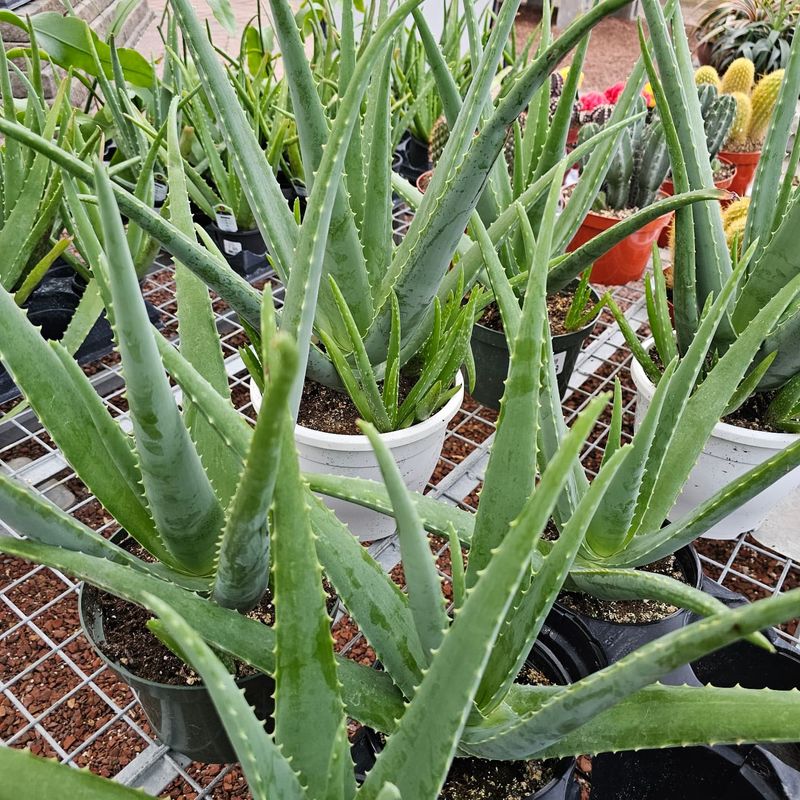
Aloe vera is renowned for its soothing and moisturizing properties, making it a staple for homemade soaps. The clear gel inside the leaves helps to hydrate and heal the skin, providing relief from sunburns and irritation.
Aloe vera grows best in warm, sunny conditions with well-drained soil. It’s a low-maintenance plant that thrives in pots or garden beds. Regular watering is essential, but it’s important to avoid overwatering.
Aloe vera has been used for thousands of years in traditional medicine and was referred to as the “plant of immortality” by ancient Egyptians.
13. Oregano
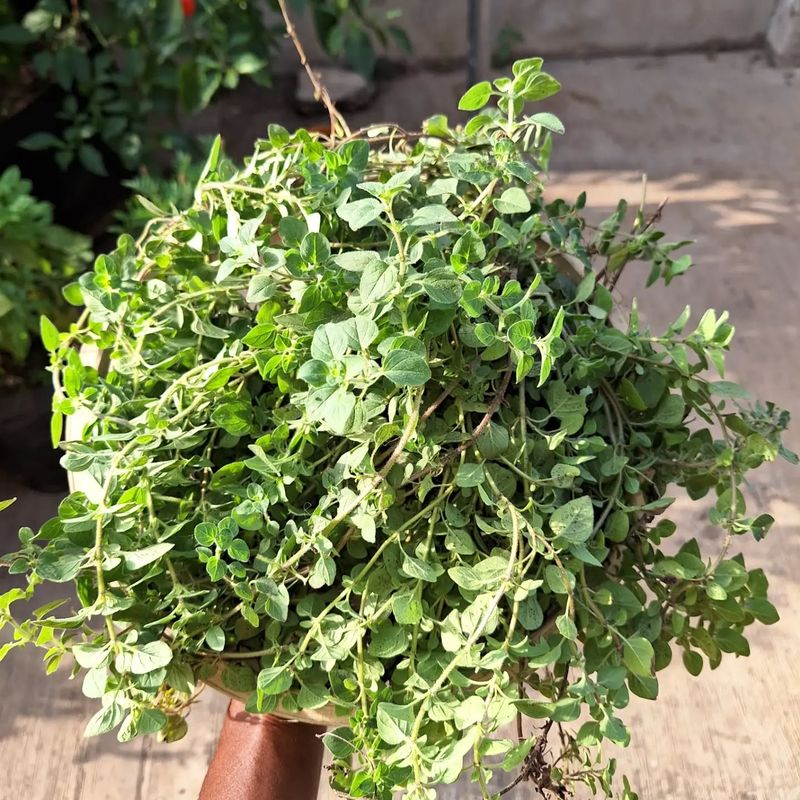
With its rich, spicy scent, oregano adds a bold and unforgettable fragrance to homemade soaps. It’s valued for its antibacterial and antifungal properties, making it beneficial for skin health.
To grow oregano, choose a sunny location with well-drained soil. This hardy herb is drought-tolerant and thrives in hot climates. Regular pruning will encourage bushy growth and more aromatic leaves.
Oregano has been used for centuries in cooking and medicine, and was believed to bring joy and happiness in ancient Greek culture. Its delightful scent and healthy benefits continue to make it a favorite today.
14. Yarrow
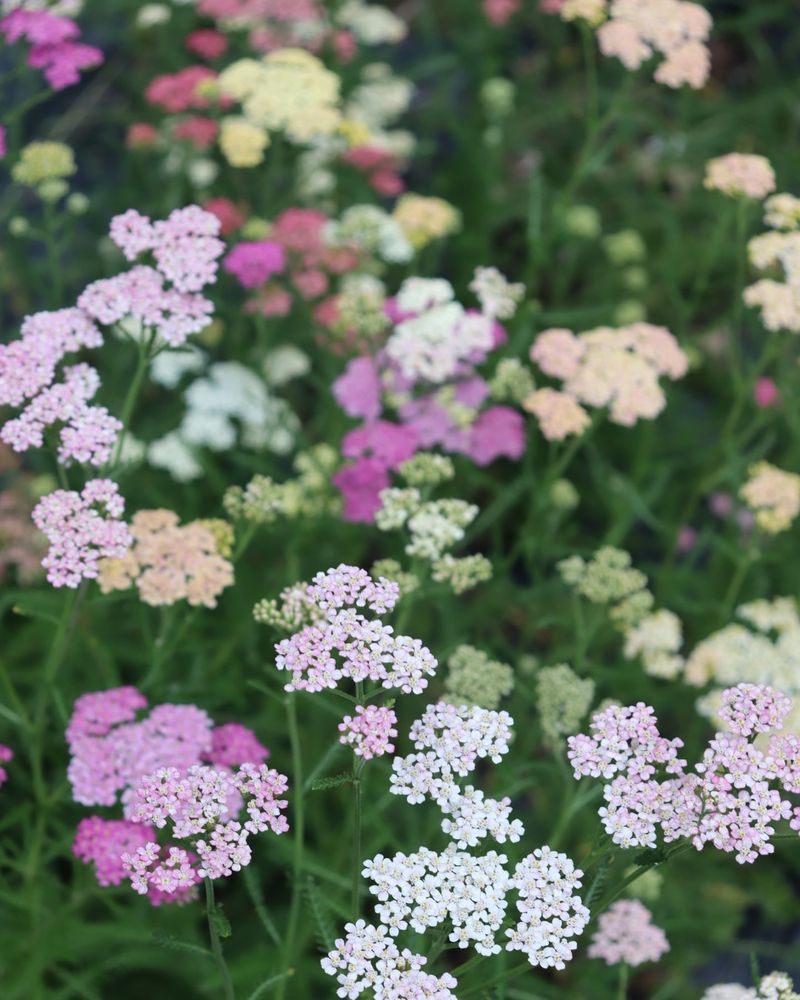
Yarrow’s gentle, floral scent makes it a lovely addition to homemade soaps. It’s known for its anti-inflammatory properties and can help soothe irritated skin.
This hardy plant grows well in full sun and well-drained soil. It’s drought-tolerant and can thrive in poor soil conditions, making it a versatile choice for gardens.
Yarrow has been used for centuries in traditional medicine to stop bleeding and promote healing. Its delicate flowers and beneficial properties make it a cherished herb for both historical and modern uses.
15. Lemongrass
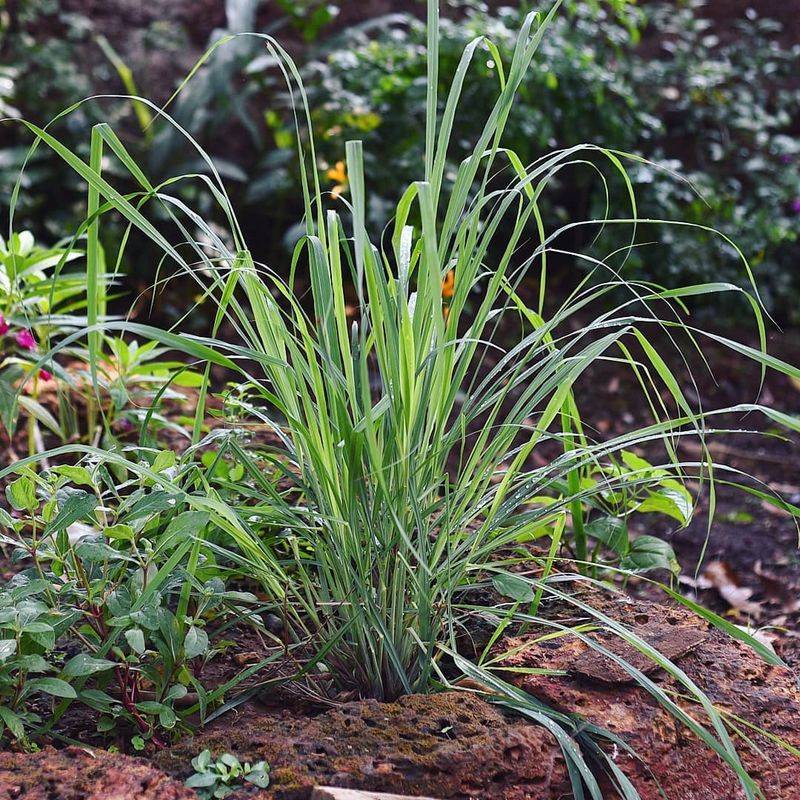
The fresh, citrusy scent of lemongrass in homemade soaps has an uplifting effect that energizes the mind. It’s known for its antibacterial and antifungal properties, making it beneficial for cleansing the skin.
Growing lemongrass requires a warm, sunny location with well-drained soil. This fast-growing plant can reach impressive heights, adding a tropical touch to your garden.
Lemongrass is widely used in Asian cuisine and has been utilized in traditional medicine for its calming and digestive benefits. Its versatile scent and healing properties make it a popular herb in soap-making.
16. Fennel

Fennel’s sweet, anise-like scent makes it a delightful addition to homemade soaps. It’s known for its soothing and anti-inflammatory properties, which can help calm the skin.
Fennel grows best in sunny locations with well-drained soil. It’s a hardy plant that can reach up to six feet tall.
Fennel has been used since ancient times for culinary and medicinal purposes, and was believed to provide strength and courage. Its unique fragrance and health benefits continue to enchant herbalists and cooks alike.

